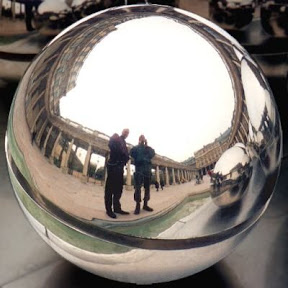 Prom No. 19: Hallé/Mark Elder
Prom No. 19: Hallé/Mark ElderR. Strauss: Macbeth
Britten: Les Illuminations
Nielsen: Symphony No.4, 'The Inextinguishable'
Obviously that is a largely pointless semantic/linguistic question, but one that arose following tonight's Prom concert at the Royal Albert Hall, where the Hallé Orchestra played as an encore a new orchestration (by Colin Matthews) of a previously lost, late piano piece by Debussy. According to conductor Mark Elder, the orchestration had never been performed before, so how could it be an "encore" (French: "again"). It is a frivolous debate, of course, but it did get me thinking about how I feel about this sort of Proms programming and encores in general.
I booked this particular Prom for the Nielsen symphony, and that alone. I was not bothered about the Strauss or Britten in the first half. And that is part of the problem with Proms programming these days - so often the really interesting stuff is mixed-in with seemingly more "safe" material that I can really do without. I know that this is partly an issue with my own tastes, which are probably much less conservative than the mainstream audience that the programmers are trying to attract. But when the notes in the printed programme describes a work (Strauss' 'Macbeth') in contrast to his "two real masterpieces" ('Don Juan' and 'Tod und Verkarung'), and refers to the "sometimes opressively heavy" execution, and a fanfare that is "hardly fresh to the ears", then one can hardly be blamed for not giving it much attention.
Britten's 'Les Illuminations' didn't do much more for me either. I really do not appreciate this kind of work, or the style of singing involved, and Joan Rodgers' operatic posturing was frankly embarassing at times. So, first half of the concert - not good. But I was not expecting much anyway.
Second half: Nielsen's Symphony No.4, 'The Inextinguishable' - Fantastic. I'm so fond of this piece, and all the wonderfully spine-tingly moments were there. The performance couldn't be faulted really, and I felt quite exhilarated at the end. So I was a bit aprehentious when they decided to do an encore.
It is difficult when a concert ends with a rousing or emotionally moving piece which has been performed well. The audience show their appreciation, but do you really want to spoil the impact of the performance by playing an encore? Of course one obvious response is to adhere to the original sense and meaning of the term and play the piece again (or at least the final section). I have heard that done before, usually to good effect, but all to often the encore is just one of the orchestra's standard set pieces - a short and usually frivolous piece that may have no relation to the main work preceeding it. When listening on the radio, these are usually prefaced by the announcer declaring that we are about to hear "a real treat". This usually spells disaster. I recall a Prom a couple of years ago when the Vienna Philharmonic followed the "Rite of Spring" with a couple of tacky J Strauss II waltzes. Just awful. It really spoilt my evening, like following a perfect steak with a malteezer McFlurry for dessert.
That said, a carefully chosen encore can enhance the overall experience. The Scandinavian/Nordic orchestras seem to be quite good at this, for example following a Nielsen symphony with his "Helios" or the Maskarade overture, or following a Sibelius symphony with one of the Lemminkainen legends or one of a number of other Sibelius 'shorts' like "Death of Melisande", "Valse Triste", "Alla marcia" or "Finlandia". But maybe I am naturally biased towards this music anyway.
At tonight's concert the Hallé's unusual approach to chosing an encore seemed to work reasonably well. By playing a piece that nobody had heard before (at least not in that form), it was guaranteed to engage some interest and not have that stomach churning "Ah! Now here comes a real treat" effect. And the work itself was 'light' enough not to compete with the main work, whilst being at the same time not too frivolous. I have to say that I could still have done without it, but at least on this occasion it did not ruin the "main meal".


No comments:
Post a Comment